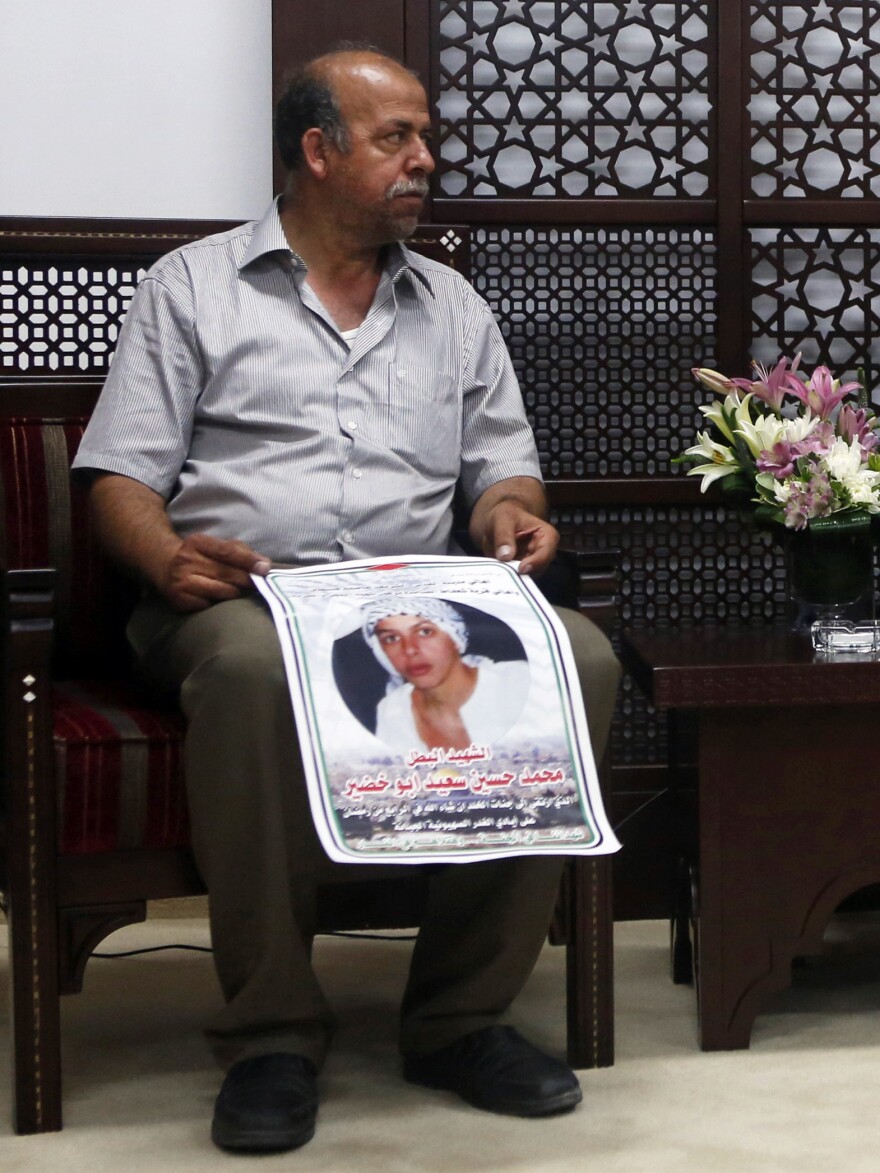The family of slain Palestinian teenager Mohammed Abu Khdeir received condolences from an unlikely source Tuesday: Israelis who had asked to come and mourn with them.
The scene was predictably awkward, even painfully so. But as NPR's Ari Shapiro reported for today's Morning Edition, the visit also brought a moment of grace for many of those involved.
The Abu Khdeir family lives in East Jerusalem, miles from the violence around Gaza, where militants have been firing rockets and Israel has launched airstrikes this week. With those tensions as a backdrop, a group of Israelis visited the family Tuesday, despite some relatives' concerns that such a visit might be used as a public relations stunt.
Here's how Ari describes the scene:
"A huge group of Israelis has just pulled up in a tour bus, and people are arriving, some wearing yarmulkes, some wearing headscarves. They are young, and old, wearing sunglasses and flip-flops or somber button-up shirts and slacks.
"The murdered teenager's uncle stiffly stands to greet his visitors. He tells me his culture of hospitality compels him to greet these guests warmly.
" 'I am an Arab,' he says. 'As long as they are in my house, I cannot turn them back. They are welcome in my house.'
"A cousin, Nihaya Abu Khdeir, stands to the side. She says she has mixed feelings. 'We have our culture and our respect. We can't just tell them to go, even if we want them to.'
"So, the Israelis sit awkwardly in the plastic chairs."
They have come to apologize for the behavior of extremists, they say. But not all the relatives want the visitors there; one woman screams not to let others in.
Explaining why she came, teacher Nena Leibel tells Ari, "I personally think that any time one person does something good for another person, this world gets a little better."
Leibel brought dates and coffee as a gift for the family. But as Ari says, "one of Abu Khdeir's aunts told her, 'I don't want anything from you.' So she hangs on to them."
Ari asks another visitor, Ruth Danziger, if it's hard to make such gestures when attacks are underway.
"Maybe," she says. But, she adds, "I think the peace will come from the people, not from our leaders."
Eventually, the Israeli women gather near Mohammed's mother in an extraordinary scene, as Ari describes it:
"In the center of the grape arbor, Mohammed Abu Khdeir's mother Suha sits, weeping over the loss of her son. Many of the Israeli women around her are crying, too.
"She speaks Arabic to my interpreter, who translates.
" 'I want them here,' she says through tears. 'I want these women to support me.' "
As he left, Ari says, Leibel stopped him to say that the gifts she had brought — dates and coffee — were finally accepted. In return, she got a hug, she says.
Copyright 2020 NPR. To see more, visit https://www.npr.org. 9(MDAwMTM1NDgzMDEyMzg2MDcwMzJjODJiYQ004))


